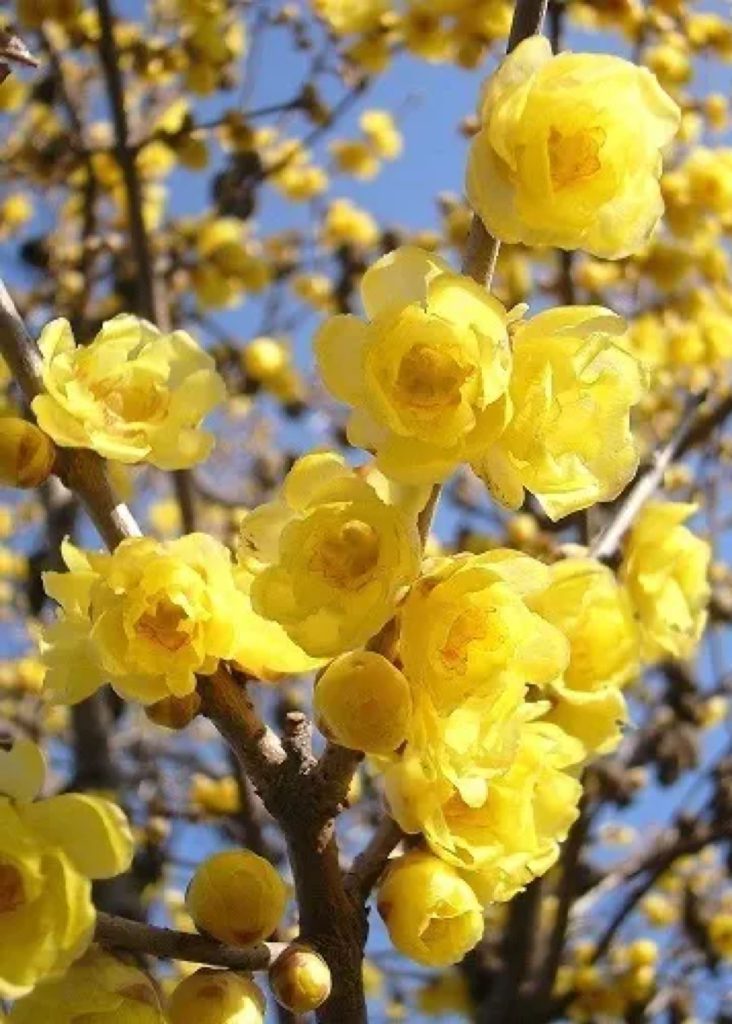
When I was a kid, my mother’s parents’ house had a Goemon bath. Robai(Japanese allspice) was planted near the bathroom, and it was in full bloom by this time of winter. At dusk, it was very impressive to see the Robai in the sunset while the smoke in the bathroom drifts, and I can still see the scene. Ryunosuke Akutagawa sings “The length of the branches that can see Robai through the snow”, but I feel like I understand it. Robai is about a month earlier than plum blossoms and begins to bloom when it is really cold. In the murderous winter scenery, the flowers and scent are much more noticeable than plum blossoms, but no Tanka poet or Haiku poet has sung Robai before that, including Basho. This is because Japanese allspice came into Japan in the late Edo period. It is also called “Karaume” or “Nanjingume”, and is called “Winter sweet” in English. It’s the perfect name for Japanese allspice, which gives off a sweet scent in the cold winter.
子供の頃、母の実家には五右衛門風呂がありました。その風呂場のそばに蝋梅が植わっていて、冬の今頃には満開になっていました。夕暮れ時、風呂場の煙が漂うなか、夕日を浴びた蝋梅が透けて見えるのがとても印象的で、今でもその光景が目に浮かんできます。芥川龍之介が「蝋梅や 雪うち透す 枝のたけ」と歌っていますが、分かる様な気がします。蝋梅は梅よりも1か月ほど早く、本当に極寒の頃から咲き始めます。殺風景な冬景色のなか、花も香りも梅よりかなり目立ちますが、芭蕉を始め、それ以前に蝋梅を歌った歌人や俳人は誰もいません。なぜなら、蝋梅が日本に入って来たのは江戸時代後期だったからです。「唐梅(カラウメ)」とか「南京梅(ナンキンウメ)」とも呼ばれ、英名では”Winter sweet”と呼ばれています。寒い冬に甘い香りを放つ蝋梅にぴったりの名前ですね。
